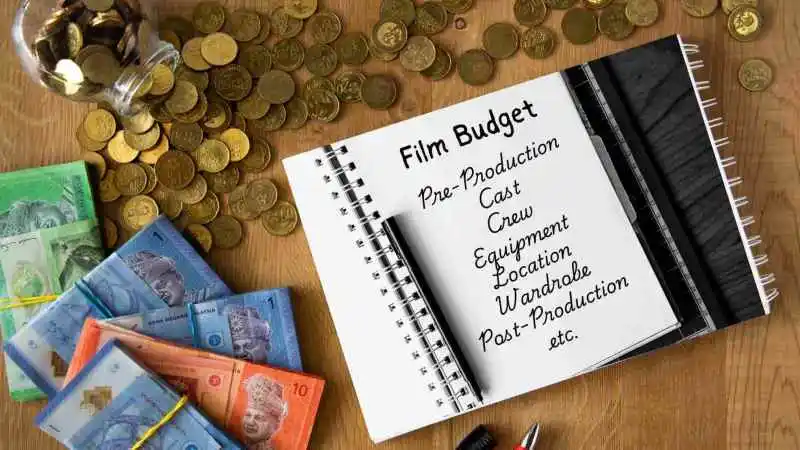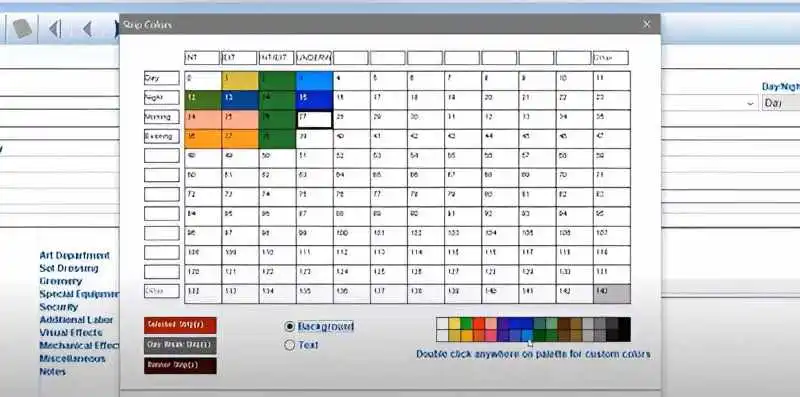
Budgeting and Financial Management for Filmmakers
Many movie ideas never see the light of day.
Some end up as screenplays with no budget to kick-start production. A few more begin but halt midway due to a shortage of funds.
For others, the journey terminates after the shooting—no money for post-production.
As filmmakers how do we protect ourselves from falling into this trap? Leaving you unable to proceed or retreat?
Perhaps the answer lies in effective budgeting and financial management. Of course, this is on the assumption that you have funding for your film before hitting the road.
And the core task would be managing the funds optimally so you can achieve your goals.
In this edition of the Wakacast Newsletter, we will look at budgeting and financial management for filmmakers.

What is budgeting and financial management in filmmaking?
Budgeting and financial management in filmmaking refer to the careful planning, allocation, and monitoring of the resources necessary to bring a film to life—from pre-production to distribution.
It is the backbone of any successful film project. Helping filmmakers ensure they have the funds to complete their movies while staying within financial limits.
Poor budgeting can lead to production delays, unfinished films, or projects that go way over budget, causing stress and financial loss.
Creating a budget during Pre-Production
A well-planned budget is the first step to a smooth production process.
At pre-production, independent filmmakers should focus on these steps:
Script Breakdown
Carefully analyze the script to identify every scene, prop, location, and effect that requires funding. You need this information to determine your cost points.
Category Expenses
Break down your budget into categories, such as cast, crew, equipment, locations, set design, costumes, post-production, marketing, and distribution.
Research and Estimate Costs
Get quotes from vendors and service providers to give you an accurate idea of the cost for each category.
Contingency Fund
Always add 10-15% as a buffer for unforeseen expenses. Things will come up that require spending.
Prioritize Spending
Focus on the essential elements that drive the story and production value. Be willing to trim down expenses in non-essential areas.
Plan for Post-Production and Distribution
Don’t forget to budget for editing, sound design, color grading, and marketing, as these can be just as expensive as production.
Call For Entries: Coal City Film Festival
APPLY: MultiChoice Talent Factory 2025

Optimizing your budget
There are many ways you can keep costs under control.
Hire an Experienced Producer: Having an experienced producer is an asset.
A good producer helps keep costs in check, negotiates deals, and ensures no dollar goes to waste.
Production schedules/Timeliness: Not keeping to schedule or lack of punctuality extends production.
One hour lost can translate to extra cost in many ways. A three-day shoot can extend to four or more.
A daytime recording can overrun late into the night and mess up your creative storytelling.
Plan well, and factor traffic and travel time into your plans. Ensure your cast and crew are punctual. It will save you time, money, and stress.
Follow the Plan: Once you draw up the budget, stick to it. Changes to the script or adding scenes mid-production can lead to overspending.
Leverage Free and Low-Cost Resources: Independent filmmakers can benefit from using unpaid locations, volunteer cast and crew, or affordable indie production tools to reduce costs.
In-kind Sponsorships: Collaborate with local businesses or brands for product placements or sponsorship deals in exchange for services or financial aid.
Track Expenses Daily: Stay on top of your spending by reviewing expenses daily and making adjustments to avoid going over budget.
The Back Up Plan: While it is good to firm up arrangements for location, equipment, and other logistics, it is also wise to have a backup plan.
A vendor may disappoint. The cast and crew can do the same. To be on the safe side, ensure there will be alternatives in case things go wrong.
Film budgeting software

Below are a few software applications you may find helpful for budgeting as a filmmaker.
There is modern software that can handle the task of managing your film budget.
Here are a few that indie filmmakers can explore:
Movie Magic Budgeting: A highly specialized film budgeting software. Visit Movie Magic Budgeting
Studio Binder is a popular software for film production management that includes budgeting features. Visit Studio Binder
Celtx: A versatile tool for production and budgeting. Many independent producers use it. Visit Celtx
QuickBooks – This application is not specific to film but is a general accounting software that can track film-related expenses. Visit QuickBooks
What happens when your film is out?
Reviewing all expenditure after post-production will be a smart move. Auditing your accounts is vital to understanding the cash flow.
It allows filmmakers to compare their budgeted expenses against actual costs and gain a complete financial picture of their project.

Conclusion
Budgeting and financial management are not just logistical tasks—they are central to the success of your film.
By creating a budget and following it, you boost your chance of completing your project with success. This will make it easier to attract funding in the future.
Thanks for reading this edition of the Wakacast Filmmaker Newsletter.
We’d love to hear your thoughts on budgeting and how you manage finances in your film projects.
Do not forget to share this newsletter with friends and colleagues in the film industry. Happy filmmaking.





